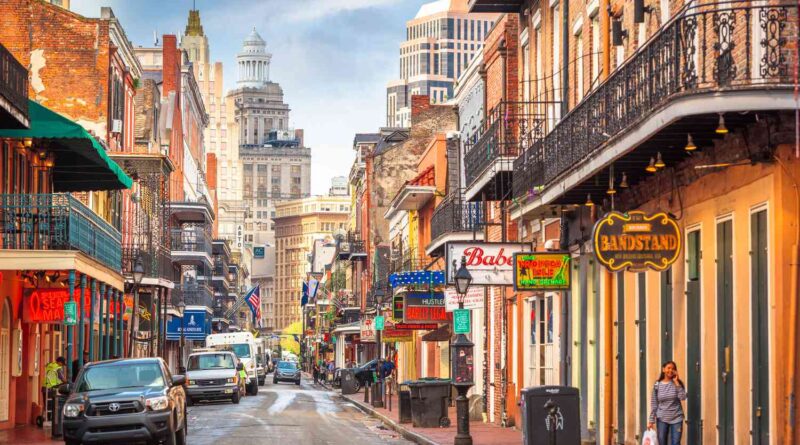History Of New Orleans Louisiana
New Orleans, Louisiana is a city steeped in history and culture. Founded by the French in 1718, it has been influenced by a variety of cultures throughout its history, including French, Spanish, African, and American. The city has played a significant role in the development of jazz music, Creole cuisine, and Mardi Gras, making it one of the most unique and fascinating cities in the United States.
The city was originally founded by French explorer Jean-Baptiste Le Moyne de Bienville, who named it after the French Duke of Orleans. The city was strategically located at the mouth of the Mississippi River, making it an important center for trade and commerce. The French established a military and commercial presence in the area, and soon it became a hub for the fur trade and a center for the production of indigo, a valuable dye at the time.
In 1762, the French ceded control of New Orleans to the Spanish as a result of the Treaty of Fontainebleau. The Spanish ruled the city for the next 40 years and made significant changes to the city’s architecture and infrastructure. The Spanish built new fortifications to protect the city from attacks, and they also introduced new crops, such as sugarcane, which became a major industry in the area.
During the Spanish rule, New Orleans saw a significant influx of African slaves, who were brought to the colony to work on the sugarcane plantations. These enslaved Africans brought with them their own culture and traditions, which would have a profound impact on the city’s culture and cuisine.
In 1803, the United States acquired New Orleans and the surrounding area as part of the Louisiana Purchase. The city quickly became a major port and center of trade, connecting the Midwest with the Gulf of Mexico and the rest of the world. The city experienced a population boom, as thousands of people came to the city to work in the port, the sugarcane industry, and other businesses.
During the Civil War, New Orleans was the largest city in the Confederacy and was a major port for the Confederate navy. However, in 1862, the Union army captured the city, putting an end to the city’s role in the war. After the war, the city experienced a period of economic and social turmoil, as many of its residents were left without jobs or homes.
The city’s African American community also played a vital role in shaping its history. New Orleans has one of the largest and most vibrant African American cultures in the United States, and it has been a major center of African American music, particularly jazz, for over a century.
In the late 19th and early 20th century, New Orleans experienced a cultural and economic resurgence. The city became a major center for jazz music, and many of the great jazz musicians of the time, such as Louis Armstrong and King Oliver, got their start in the city’s vibrant music scene. The city also became a major tourist destination, with visitors coming from all over the world to experience its unique culture and cuisine.
One of the most famous and iconic events in New Orleans is Mardi Gras, a celebration that takes place the day before Ash Wednesday. Mardi Gras has been celebrated in the city since the 18th century, and it has evolved into a major tourist attraction, drawing millions of visitors to the city each year. The celebration features colorful parades, costumes, and traditional foods, such as king cake.
Another aspect of New Orleans culture is its Creole cuisine, which is a blend of African, French, Spanish, and Native American influences. The cuisine features dishes such as gumbo, jambalaya, and étouffée, which are made with local seafood, meats, and vegetables. The city is also famous for its traditional cocktails, such as the Sazerac and the Hurricane.
New Orleans has been through its share of difficult times in its history, including natural disasters such as Hurricane Katrina in 2005. The city has since rebuilt and is still a major tourist destination and cultural center, known for its unique blend of history, music, food, and celebration. The city continues to be a melting pot of cultures, and its residents take pride in preserving the city’s rich heritage.
Today, New Orleans is a vibrant and diverse city that is proud of its rich history and culture. It continues to be a major tourist destination, known for its music, food, and celebration of life. Visitors can explore the historic French Quarter, take a jazz tour, or indulge in the city’s famous Creole cuisine. New Orleans is a city that is always alive with music, festivals and a unique blend of cultures that make it one of the most unique and fascinating cities in the world.




